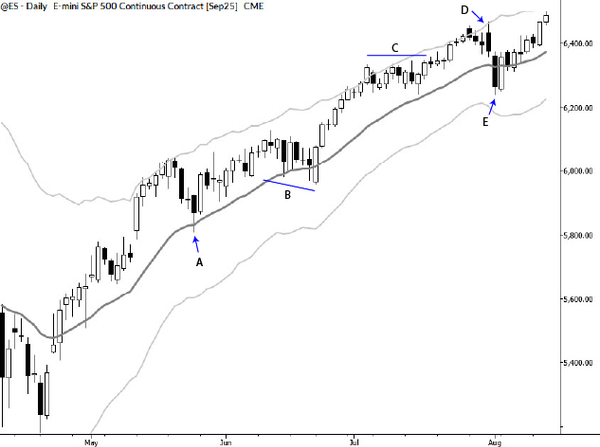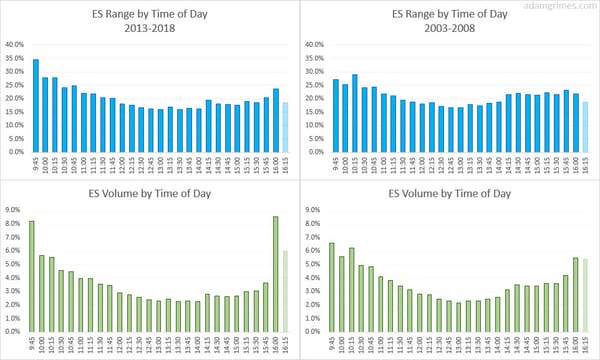The secret formula for success
The secret to success is no secret at all—it’s right there in the open, for everyone to see. To achieve greatness in any field you have to do the right things, work very hard, and sacrifice.
As I’m typing this, I have a band-aid on my left little find, and it’s pretty annoying to type. It’s there because I have been working very hard to rebuild my piano performance skills, especially over the past few months. (And before you worry, no I haven’t played my finger to a bloody stump, but the combination of a small scratch from opening a box and catching the finger repeatedly on the side of a key when working on a motion for a Chopin etude—that’s a little painful.)

In this discipline, I know exactly what I want to be able to do, and I can evaluate my progress at every stage—sound and kinesthetics tell me everything I need to know. I know exactly what I want a passage to sound like, and I can listen (or record myself) every time I play it, thousands of times over the course of a day. If I really understand the subtle feedback my body gives me I can tell if a movement is exactly coordinated or not. In short, I can use the gap between where I am and where I want to be as a tool to improve.
Deliberate practice and sacrifice
I also have a pretty good idea what I need to do to get the results I want. When something isn’t right, I switch to problem solving mode: I can evaluate what I’m hearing, feeling, and sensing against my ideal of clean technique to find tiny inaccuracies. I know a problem might not be what I think it is, so I know I need to look before and after, consider if it’s a brain or “finger” problem. Once I find the solution, I know the right things to do to make it permanent. This takes time—a lot more time than anyone would think, but it’s the only way.
All of this, of course, means sacrifice. The way I think of it, our conscious, “awake” time on this planet is the ultimate currency—you only have so many hours of the day. If I want to play serious piano repertoire, learn all the Chopin etudes, Beethoven sonatas, showy literature like Islamey and the Liszt Transcendental Etudes, then the cost of gaining that skill is measured in hours of my life. (I know that even three hours a day, every day, is not likely to be adequate; things start to get interesting around five or six hours a day—every day.) This is sacrifice: you aren’t doing other things so you can do the thing you want to do really well.
It’s not rocket science, but most people live their lives without going deep like this, into anything. Most people “lead lives of quiet desperation”. If you want something else, you have to do something else—you have to do something extraordinary.
What’s different about trading?
What I’ve just outlined is a simple explanation of deliberate practice, and it works well in many disciplines, but we run into problems with trading. I talk to many struggling and developing traders who would basically do anything it takes to be successful, or at least this is what they genuinely believe.
All the hard work in the world won’t get you where you want to be unless you are doing the right things.
And, in trading, we don’t know what those right things are. Should I be studying charts? Should I be learning to program? Should I be reading a book on Elliott wave? Should I be learning accounting? Where to start?
So much of the advice given is from traders who are not successful themselves (far more people talk about trading than actually do it.) Even if they have had some success, they may not understand the drivers of that success so they cannot teach and transmit knowledge.
Even if we did understand what those right things are, the nature of feedback in the market is very different. There are many factors out of our control, and results are very loosely tied to actions. Going back to my piano example, if I flub an inner voice in a Bach fugue, I can be pretty sure I made a mistake—whether it’s physical (bad fingering) or mental (I don’t really know the line or my concentration faltered) is another question, but it’s almost certainly my fault. I can fix that and I need to fix that.
What if I lose on a trade? That would seem to be information from the market. What if I lose on three trades in a row?
I may have done exactly the right thing. (In fact, as I write this, I am looking at a string of small losing trades in recent days. Each of them was an excellent trade; I did exactly the right thing. The market still punished me with no prejudice. (And, in this case, they were all paid for by a single winning trade that’s even now grinding toward its profit target.))
I’ll likely break even or make a very small amount of money on this set of trades, but I know I have traded with absolute excellence and made no mistakes. How would I feel if I were a developing trader? Four losing trades to about one (and a half) winners doesn’t feel good. I’d be likely to start questioning my system, looking at charts to see “what I missed”, reading tarot cards, or doing any number of other non-productive things
Solving the trading puzzle
This doesn’t make the challenge impossible, but it does make it different. Comparisons to sports, music, chess, academics, etc. have limited utility because trading is so different—outcomes are only loosely tied to actions.
So what to do? How can we know where to focus our hard work and passion for the markets? Here are some ideas:
- Decide what kind of trader you want to be: discretionary or systematic? Long-term or short-term? Fundamental or technical? The skill sets for each are very different, so the right things to do are very different.
- No matter how you’re trading, start to shift your mindset to thinking in large sample sizes. I must look at my trades over samples of 20-50, rather than focusing on the last 5 outcomes. For most of us, this will be an ongoing mental struggle for many years, so resolve yourself to think in that direction from the very beginning.
- Find excellent sources of information for your chosen style. This is harder than you think. Many books are misleading or wrong. Many gurus are not what they appear to be. (For instance, low-float, smallcap stock daytraders use their followers to move stocks. They guru himself may even be profitable, but you can’t replicate that.) Much of the conventional wisdom is not wisdom. (I recently saw a guy in a Facebook group say of course Elliott wave was valid because people have been using it since the 1930’s. I believe this person was well-intentioned, but that’s a silly justification. For several thousand years, applying metallic mercury to wounds or inhaling the vapor of heated mercury was thought to be a cure for syphilis.) You need to be very careful what information you allow into your practice.
- Your trading success will be built on years of work. You aren’t going to get this done today. Figure out how you can work consistently, but perhaps for a short time each day, and plan to do this for years. Working hard a few weeks and then forgetting about trading for a couple months will not get you where you need to be.
- The essential skills of trading are probably not what you think they are. Give some thought to that too.
- Last, you’ll need motivation for this long journey. Money is how we keep score, but if you are only motivated by money, I think your chances of success are a lot lower. If you are seeing trading as the only way to achieve your financial goals, this can very easily lead to a sense of desperation that can make everything else impossible and assure your failure.



